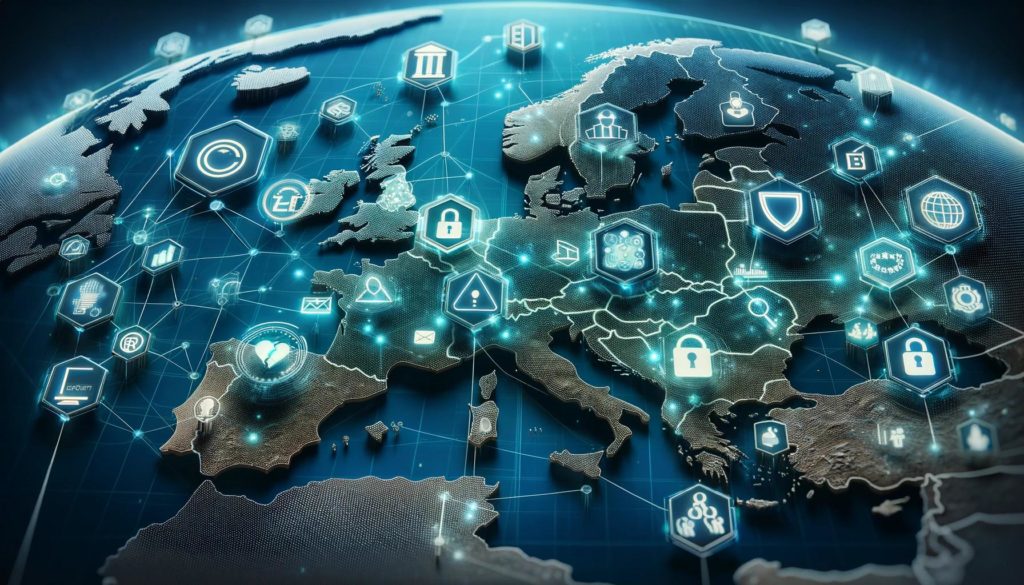GDPR: The Key to a Unified Digital Market and Global Impact
In May 2018, the introduction of the General Data Protection Regulation (GDPR) initiated a groundbreaking moment for the protection of personal data in the European Union. GDPR not only revolutionized the way personal data is protected within the EU but also had a significant impact on companies worldwide, promoting a uniform data protection standard across all member states.
Harmonization Leaps: From Fragmentation to Coherence
Before GDPR, diverse regulations in the EU challenged international enterprises. This created legal uncertainty and barriers to activity. GDPR introduced uniform rules, simplifying data management for companies. It also enhanced privacy protection for EU citizens.
Strengthening Citizens’ Rights and Operational Transparency
GDPR strengthened data subjects’ rights, introducing key mechanisms. These include the right to be forgotten, data access, and rectification. These initiatives boosted control over personal data. They also promoted transparency in organizational operations.
Global Impact of GDPR: Beyond EU Borders
GDPR significantly impacts not only enterprises operating within the European Union but also those outside its borders. Companies from outside the EU that process the data of EU citizens for offering goods or services, or monitoring their behavior, must also comply with GDPR. This global reach makes GDPR a de facto international standard for data protection.
The introduction of GDPR inspired many countries to review and improve their data protection regulations. For example, the California Consumer Privacy Act (CCPA) and the General Data Protection Law in Brazil (LGPD) draw from GDPR experiences, aiming to raise data protection standards in their territories. GDPR has become a global benchmark for data protection regulations, promoting high standards of personal data protection worldwide.
Enterprises Facing New Challenges
Implementing GDPR required international enterprises to adjust their data protection policies and procedures, which was a challenge for many. However, these initial investments in GDPR compliance will bring long-term benefits, increasing consumer trust and promoting a safer digital environment.
The Future of Data Protection: GDPR as the Standard
GDPR not only unified the digital market in the EU but also raised the bar for personal data protection worldwide. As a living document, GDPR will likely evolve to meet new technological and social challenges, continuing to inspire a global approach to privacy and data protection.

Inspiring Global Standards
GDPR sparked a global discussion on data protection, highlighting international cooperation’s importance. The exchange of best practices is crucial as the digital economy transcends borders. GDPR serves as a model, showing that data protection and individual rights can coexist with innovation and economic growth.
Further Challenges and Opportunities
Although GDPR has established strong foundations, many challenges lie ahead. The development of technologies such as artificial intelligence, machine learning, and the Internet of Things (IoT) poses new privacy and data protection questions for GDPR. In response, EU institutions and supervisory authorities must continually adjust interpretations and guidelines to ensure that GDPR continues to achieve its goals in a rapidly changing technological world.
Education and Awareness: Keys to Success
The key to GDPR’s success is education and raising awareness. It’s vital for both businesses and citizens. Understanding rights and obligations is essential. This builds a culture where privacy is a fundamental right. It should not be seen as an option. Organizations gain a competitive edge by treating data protection as integral. This builds trust and customer loyalty. They see it as part of their business strategy.
Summary: GDPR as the New Standard for Data Protection
GDPR has become a milestone in personal data protection. It established strong, uniform frameworks for Europe. It also inspires changes worldwide. Its impact on global enterprises is significant. It affects regulations in other countries and technological development. This underscores the importance of an adaptive stance towards data protection. A proactive stance is also crucial. We are now entering a new digital era. GDPR will continue to play a key role. It shapes the future of privacy and personal data protection. Operates on a global level. It sets standards for other countries and regions. These countries and regions will strive to meet these standards.
